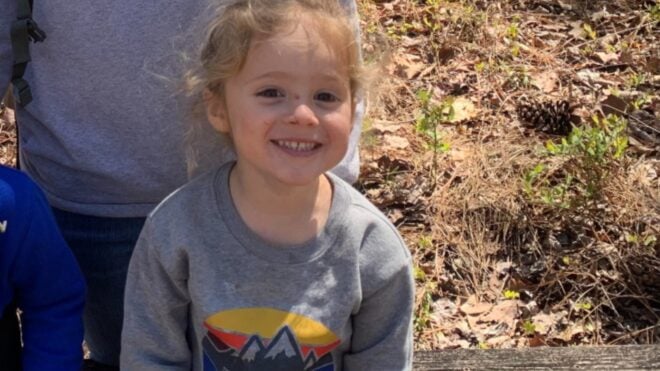Baby otters are some of the cutest little animals to exist on Earth.
Sadly, many sea otter species are quickly placing high on the endangered wildlife list. Mother otters often can only give birth to one pup each year. If they have two babies, they'll often end up abandoning one of them, to focus on taking care of only one.
When this happens, baby otters are left orphaned, vulnerable, and susceptible to attack by vicious predators and disease.
Just three years ago, the Wildfowl & Wetlands Trust Washington Wetland Centre (WWT) in England rescued two adult otters, Mimi and Musa. Together, the otter couple has formed quite a family. 10 months ago, mama Mimi gave birth to the couple's first daughter, Squeak.
And just a few weeks ago, in the beginning of March, the family welcomed a total of four new babies. The family is already learning to work together to fully take care of these adorable new pups. These babies will be learning to swim and play in no time!
Scroll further to see this adorable little otter newborns, and let us know your thoughts about saving and preserving wildlife populations in the comments below!
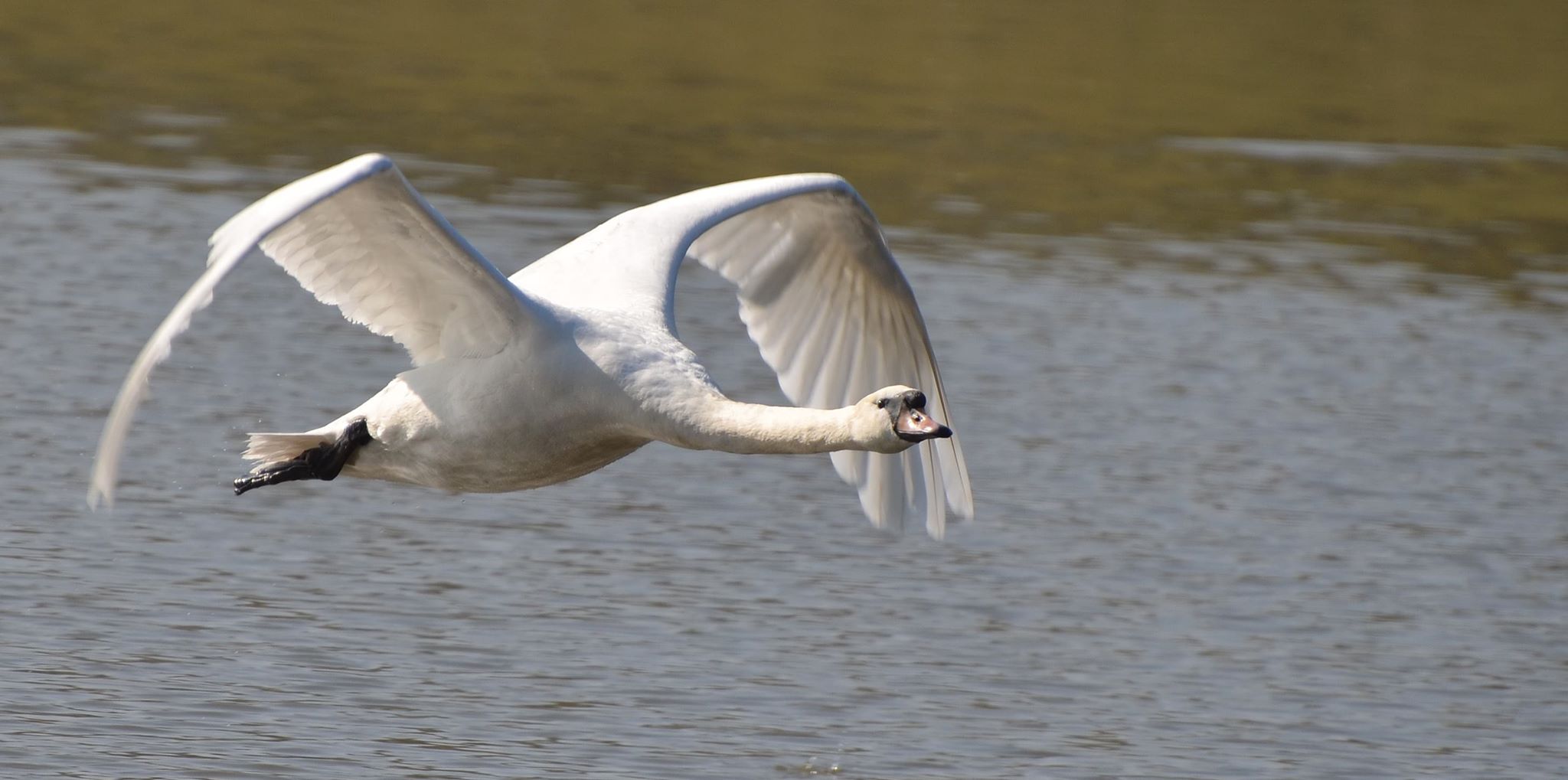
The Wildfowl & Wetlands Trust Washington Wetland Centre (WWT), a conservation center that saves wetlands and wildlife located in Sunderland, England, devotes its time and effort into saving countless endangered species each year.
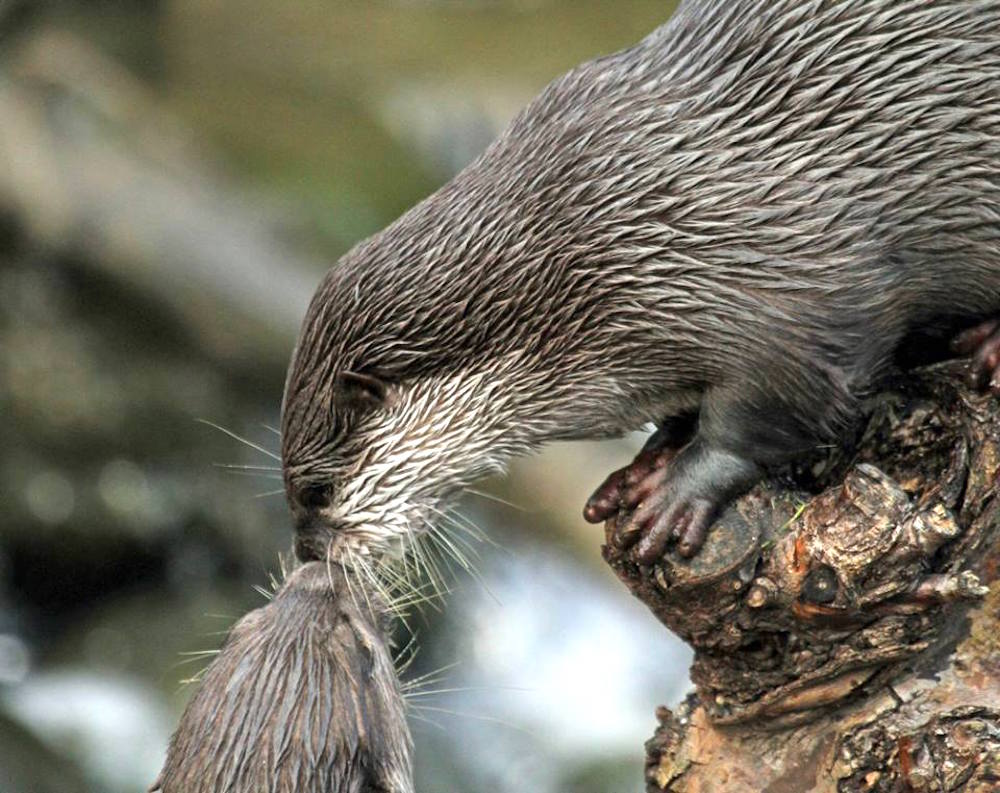
Not long ago, they rescued two adult otters, Mimi and Musa.
These Asian short-clawed otters have stolen our hearts as the famous pair of “kissing otters.”
Though it looks like they are kissing, Musa is actually “taking water” to Mimi using his mouth, passing the water from his mouth to hers.
Still, the behavior is found to be rare in otters of their kind, and goes to show what a special, loving bond they have.
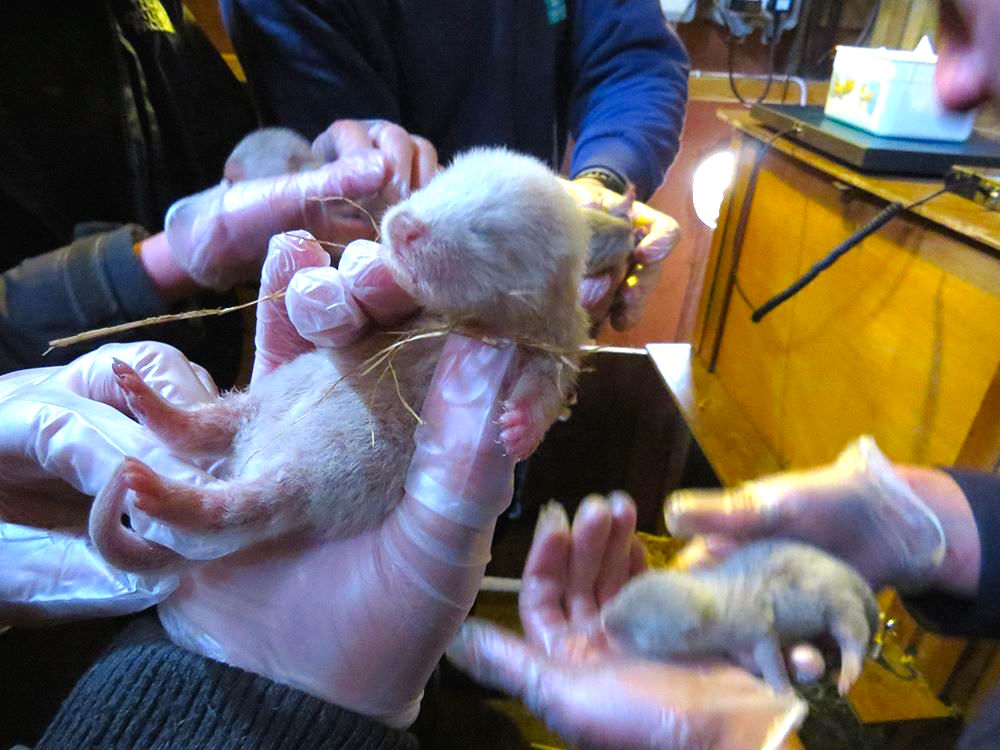
Just a few weeks ago, in the beginning of March, Mimi and Musa welcomed a total of four new babies to their family.
Mom Mimi had given birth to their eldest daughter, Squeak, just 10 months ago.
The birth of the quadruplet pups is quite a miracle.
According to a Defenders of Wildlife factsheet, sea otters usually only give birth to one pup each year.
Often, when they give birth to two pups, they will abandon one of them, as they seldom can properly take care of two at once.
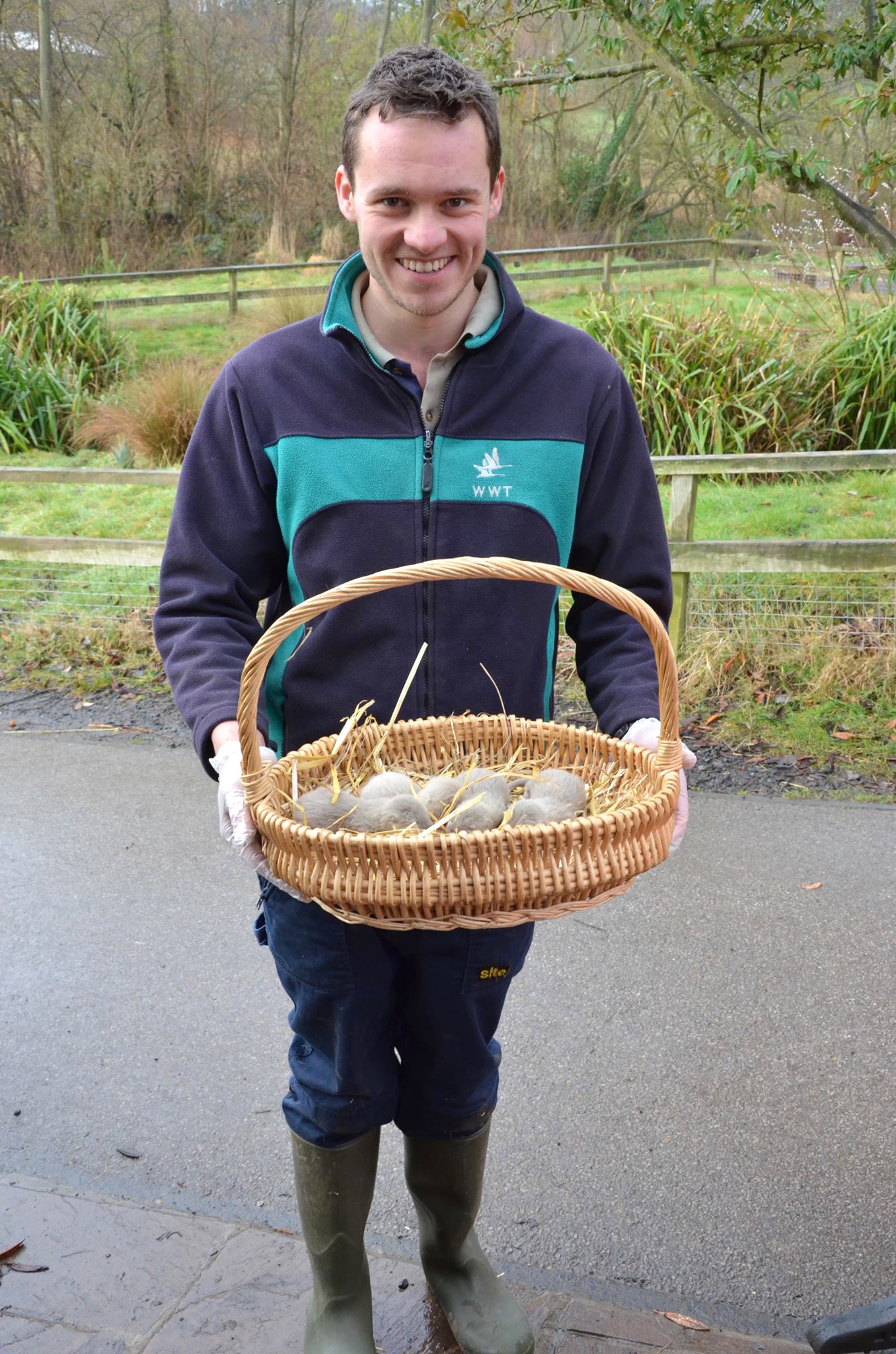
The staff at the WWT are amazed and thrilled by the safe arrival of the quadruplets.
The otter pups were born without teeth, and most likely won’t open their eyes for about another month or so.
According to the WWT’s blog, both Mimi and Musa have been very hands-on throughout the process.
“Once again, [Mimi and Musa are] proving to be fantastic parents, so we will be as hands-off as possible to let them bond and grow as a family.”
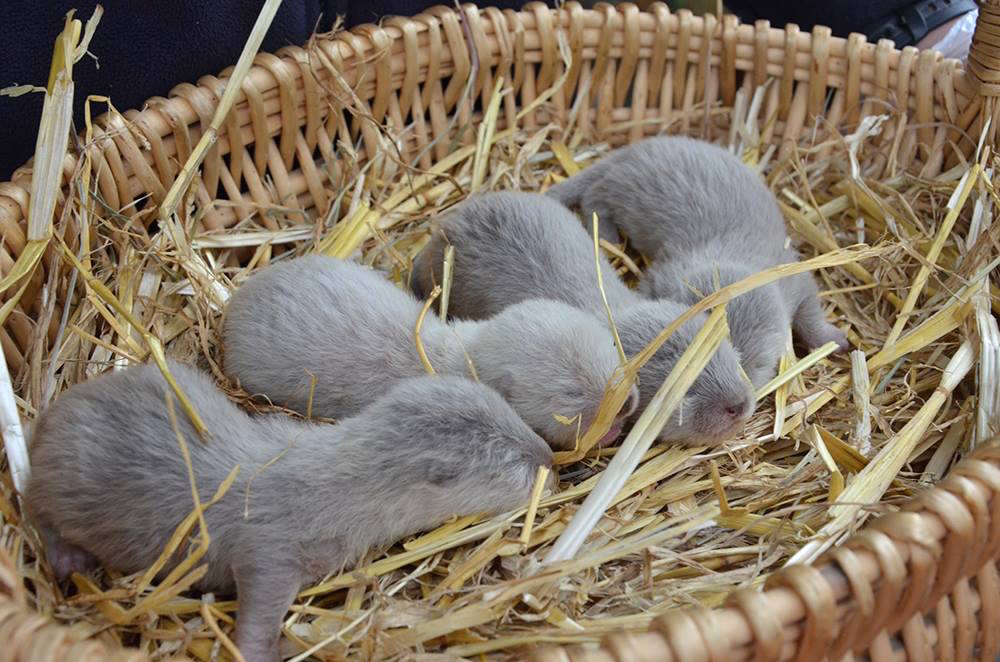
Dad Musa has also been super attentive to Mimi, and regularly brings her food, water, and bedding, according to the blog post.
The adorable otter couple has been together since 2013, and were actually introduced to each other on Valentine’s Day of that year.
Their species are most often found in the swamps and forests of Asian countries including Taiwan, the Philippines, southern China, and India.
As vulnerable as they are, there are great non-profit organizations out there like the WWT that are striving to preserve these species to the best of their abilities.
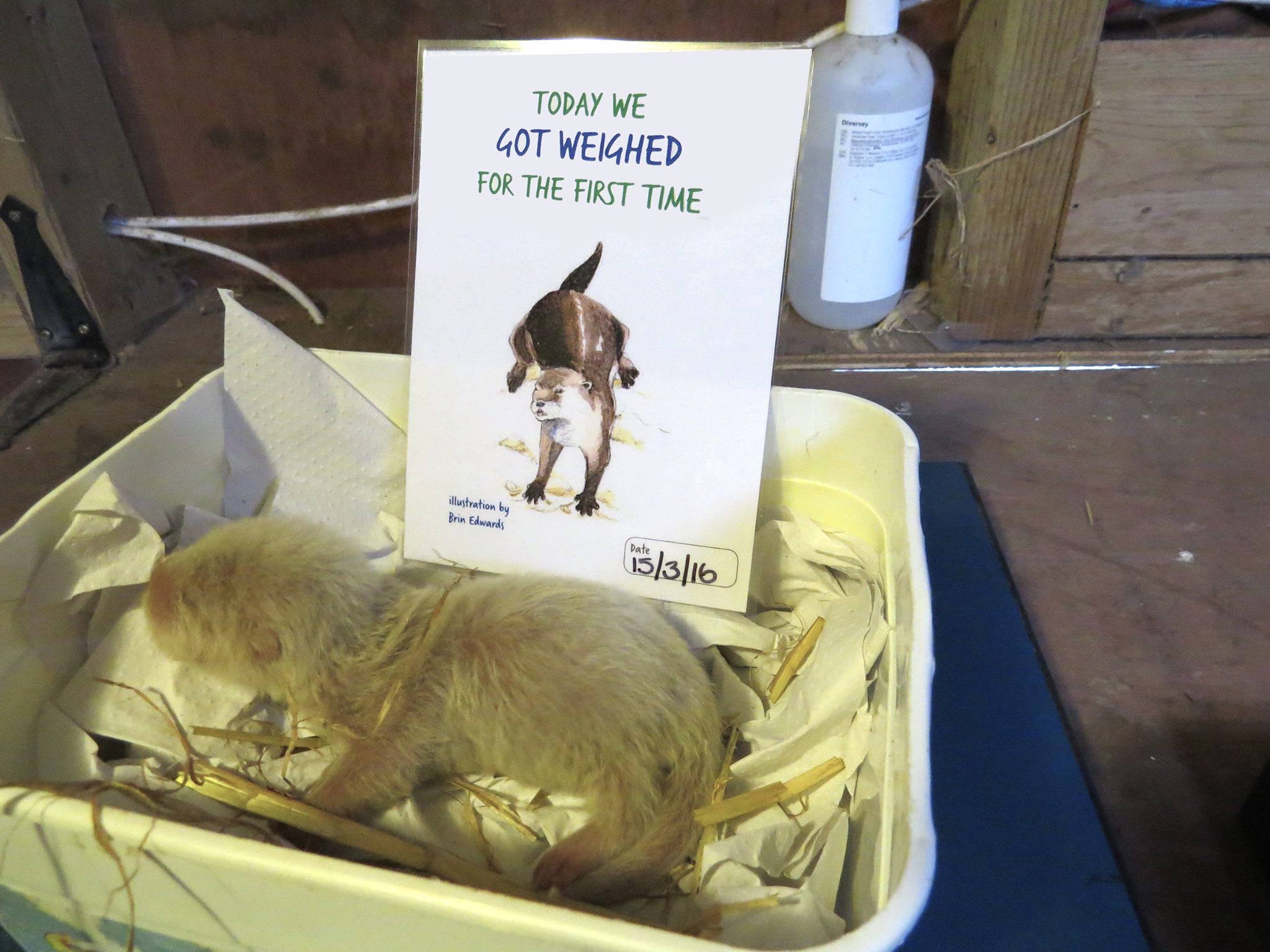
Asian short-clawed otters are known to be highly sociable, and often play games together.
Older siblings will help the younger pups learn how to swim and develop valuable hunting skills.
We are looking forward to seeing how these four precious pups will grow, as well as how the family will learn and love together!
Click here to visit the WWT’s Facebook page, and to learn more about the animals they have saved.
Please SHARE if you think we should all strive to save endangered wild animals!

